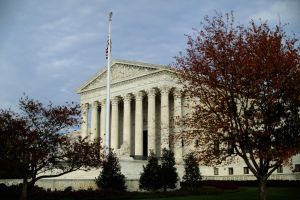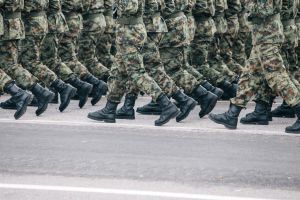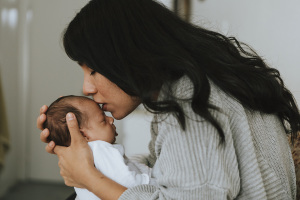Evangelicals, Human Rights Groups Decry Gov't Inaction on Refugees
WASHINGTON – Thousands of men and women are facing another holiday season apart from their families and uncertain of whether they will be granted asylum in the United States.
Though they came to the United States seeking protection after fleeing persecution in their home country, many have been labeled terrorists and have been caught up in what some are calling an "Alice in Wonderland" situation.
"We just think that this is outrageous that this would be going on," said Barrett Duke, vice president for Public Policy and Research of the Southern Baptist Ethics and Religious Liberty Commission.
"And it's obviously the result of simply a bureaucracy that seems to have lost any idea of what common sense is and certainly has lost the ability to apply some level of compassion and concern about the folks who are being caught up in this bureaucratic limbo."
Duke was among seven panel members who on Monday expressed their concerns and frustrations over the treatment of refugees.
In one case, a young man from South Sudan has been trying for years to get permanent residence in the United States. His request was denied because of his possible ties to a terrorist organization. But what is determining that tie is the time he was held at a Sudanese rebel army's training camp for a month after being abducted as a child. He escaped and resettled in the U.S. but his case remains on hold.
Such cases are the result of what human rights groups argue are overly broad provisions in immigration laws that were intended to protect the U.S. against terrorism.
The 2001 USA Patriot Act, passed in response to the 9/11 terrorist attacks, expanded the definition of a terrorist to include those who were involved in a group that, for example, fought repressive governments or whose group was affiliated with another group that engaged in military resistance against a persecuting regime.
Others who have been placed in the terrorist category include people who were abducted as children and forced to fight against rebel groups, doctors who assisted the wounded and were unaware that the patients were terrorists, and women who were forced to feed terrorists at the threat of their lives.
"We support the goals of keeping the terrorists out of the United States," Duke said, "but somehow, those well-meaning goals have been turned on their head."
Galen Carey, director of Government Affairs at the National Association of Evangelicals, said the asylum system is broken. He lamented that the laws meant to keep Americans safe are actually doing nothing to enhance security and are often hurting other people.
"When the United States is not seen as a beacon of freedom and hope, that actually deteriorates our security," he said during the panel discussion, hosted by the Hudson Institute, in Washington.
In 2007, Congress, after realizing they may have overreached, agreed to grant waivers to those seeking refugee status and asylum.
But those waivers have been used sparingly, said Kevin Appleby, director of Migration Policy and Public Affairs at the U.S. Conference of Catholic Bishops. Only about 10,000 exemptions have been awarded, he said, and over 20,000 refugees are still being impacted.
The diverse panel members joined about two dozen other groups in asking President Obama to use the waivers more aggressively.
The problem, they say, has been going on for far too long and families have spent too many holiday seasons apart as the father or mother's refugee status remains in limbo.
Wendy Wright, president of Concerned Women for America, was among the signatories of the letter addressed to Obama in October. She also joined the panel on Monday to draw more attention to the issue.
"Our policies should not result in breaking up families, yet the bureaucratic limbo that these refugees experience impact their families," she said.
"As Americans, we humbly believe that America is a great country. And one reason why America is great is the foundational principle ... that all men are created equal, that they are endowed by their Creator with inalienable rights. God created each one of us and placed us in families. Knowing this helps us see the value in each human being and gives us the desire to care for those in need and their families."
Monday's panel discussion was held just ahead of the 60th anniversary of the United Nations Refugee Convention, an international agreement that defined who is a refugee and spelled out the human rights of individuals granted asylum. Other speakers on the panel included Michael Horowitz, senior fellow at the Hudson Institute; Elisa Massimino, president/CEO of Human Rights First; and Melanie Nezer, senior director for U.S. Policy and Advocacy at Hebrew Immigrant Aid Society.





























